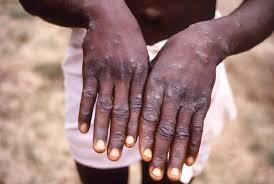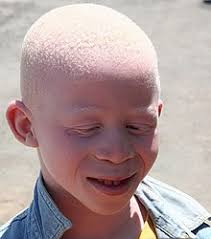He was confident enough to ask me whether depression exist in Africa. I was stunned, either by his ignorance or by his seemingly dismissive nature towards the topic. Somewhere between the lines formed on his forehead spelling arrogance and contempt was one that read curoiusity and willingness to know more.
I took my time, managed to suppress my anger and schooled him on the topic of depression. After long chat, I gathered that he was yet another African made to believe that depression is a foreign culture that has been blindly copied from the whites and that it does not apply to those it Africa. To some extent, he believed only white folks suffered from such a condition.
When we parted ways, I was convinced he had a different convinction about depression and people who live with it. He promised to read more about it, and I was glad.
I know you could read about it too, as a matter of fact, I would love that you do but *before you do, let me give you a little gist about it, from the little knowledge I have garnered as a health professional. Hopefully, I would stir your desire to want to know more.
What is depression?
Depression is a mental health disorder characterised by persistent depressed moods or loss of interest in activities causing significant impairment to daily life (google).
Before you scream about it being a mental health disorder, know that every individual skips a period of normalcy once in a while. It happens when you cry, feel pain, feel very excited or feel very aggitated. The only difference or the factor that makes it a disorder is how long it lasts. A person should be able to get back to normalcy after a short period a time. It becomes questionable when it exceeds fourteen(14) days. A person can be queried or diagnosed with depression when they stay in a depressed state for 14days continuously or beyond .
Research has shown that it affects women more than men, and I am tempted to believe it’s because we are more emotional. They haven’t been able to prove the reason for that statistics though.
Causes;
There are a number of factors that can cause a person to suffer depression, they could be biological, psychological and social factors. Faulty regulation of mood by the brain, medications, stressful life events and some medical conditions can be causes of depression. There are nerve factors like its growth and function that have major impact on depression ( you could read extensively on that if anatomy and physiology interests you much.)
Risk factors;
-People with poor coping mechanisms
-Family history of depression
-Childhood trauma
-temperament of the individual
-Abuse of recreational drugs
-Having a previous episode of depression
Symptoms;
Anxiety
Apathy
Discontent
Guilt
Loss of interest in activity
Hopelessness
Loss of interest
Mood swings
Sadness
Insomnia
Over sleeping
Loss of appetite
Restlessness
Suicidal thoughts and tendencies, etc
Types of depression;
There are different types of depression ranging from mild to serious forms. Those that last long and those that do not .
There are nine(9) basic ones,
-Major depressive disorder: most common type of depression. Symptoms are extreme sadness, hopelessness, suicidal thoughts, etc.
-Persistent depressive disorder: Also known as dysthymia. Its a mild form of depression and not as severe as major depressive disorder . It’s low level depression that lasts for two years or longer. It’s the chronic form of depression.
-Atypical depression: a common sign of atypical depression is a sense of heaviness in the arms and legs ( like a form of paralysis). Oversleeping and overeating are two major symptoms of atypical depression. Irritability , low mood reactivity and weight gain are also symptoms. Treated mostly with talk therapy.
-Situational depression: also called adjustment disorder. Triggered by life changing or stressful events. It’s more common than major depression and mostly doesn’t need to be treated by medication. It mostly clears up when the event has ended. Events like, a breakup, job loss, death of a loved one, trauma, etc
-Pre-menstrual dysphoric disorder: (PMDD) affects women during the second half of their menstrual cycle. Strikes once a month, days before her period. Symptoms are moods swings, anxiety, irritability and depression. It is much more severe than premenstrual syndrome which is common for most women.
-Post partum depression: depression that occurs after having a baby. Symptoms include, fear of hurting the child, suicidal thoughts, extreme sadness, hopelessness,anxiety, fatigue, feeling of disconnect from the child.
-Psychotic depression: loss of touch with reality. Characterized by delusions and hallucinations. They experience phychotic symptoms like becoming catatonic, not speaking and not leaving their bed. Mostly treated with a combination of antidepressants and antipsychotic medications.
-Bipolar disorder: people with this kind of depression have extremely low periods followed by extremely high periods. It was referred to as manic depressive disorder because it has components of both.
-Seasonal affective disorder: occurs at the same period of time every year. They experience signs of depression at specific times or seasons. Most people experience this when it is winter and it’s believed its caused by the absence of light.
Treatment;
-psychotheraphy
-medication
– medical procedure
-lifestyle modification
(Will do an extensive post on this soon).
Etc.
Depression is not an evil induced illness or a curse as some people believe it to be (I am not denying the spiritual aspects of it however). We are human and sometimes our responses to life occurrences can cause us to become depressed. It can happen to anyone, from pastors to soldiers, children to adults, Christians to Muslims. It can happen to anyone anywhere across the globe. The most important thing we must pay attention to is that, it is treatable and curable. The most effective form of treatment has been proven to be the talk therapy and almost everyone can offer that. Even if you are not a professional, you can help someone who is depressed by speaking positively and kindly to them. I hope this helps you to be able to identify someone who is treading on the path of depression.
Do not hesitate to seek help if you recognise any of these signs and symptoms, either it’s for yourself or for a loved one.
Let’s all help for the world to be a better place.
Till next time,






























